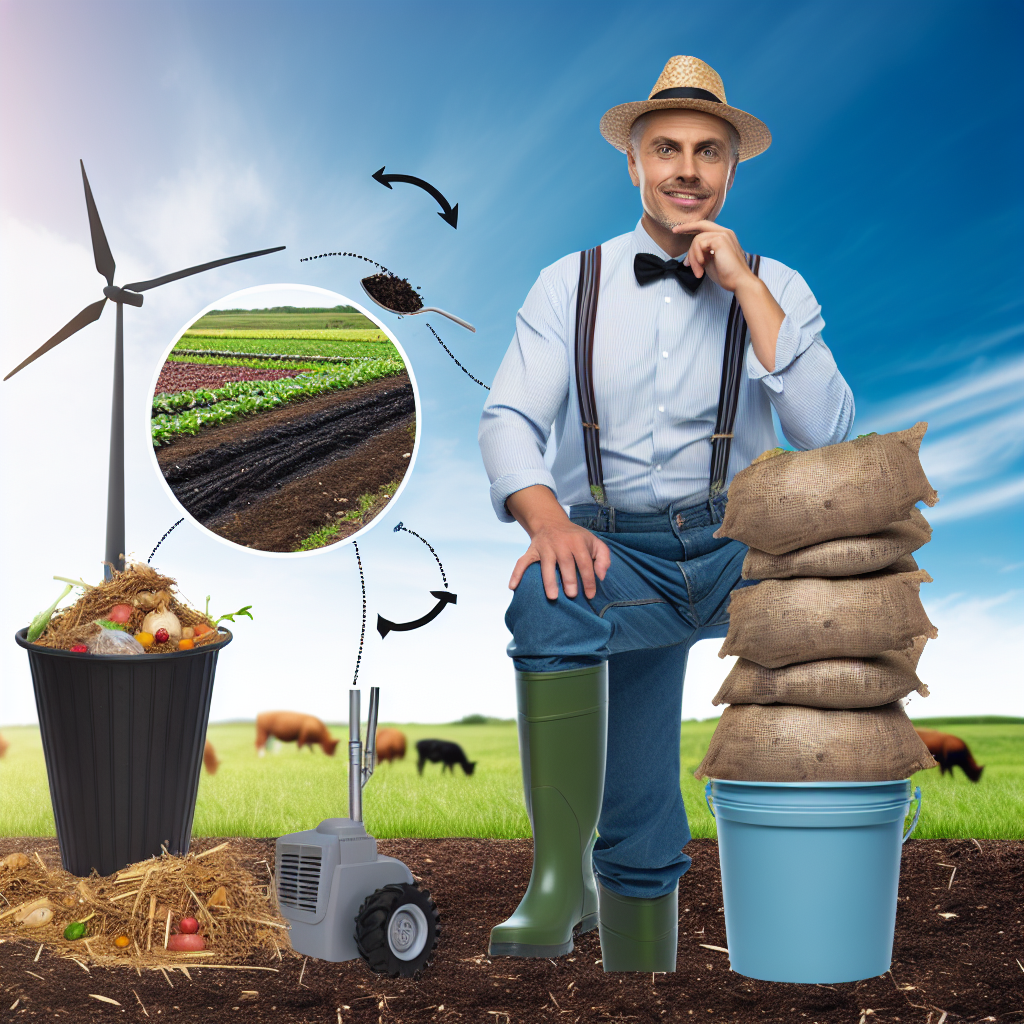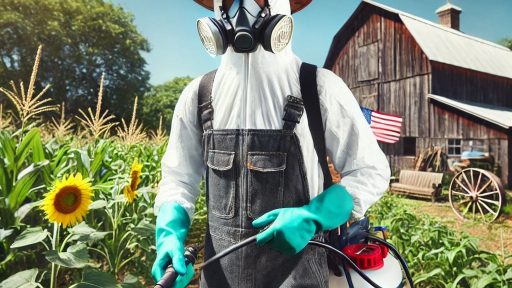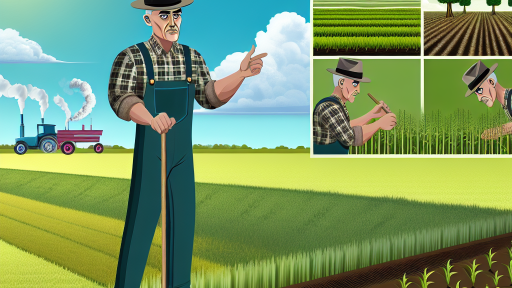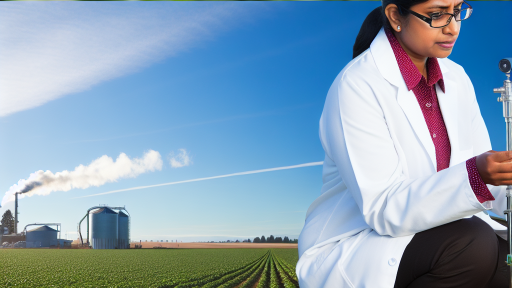Introduction to Eco-Conscious Waste Solutions
Waste management plays a crucial role in sustainable farming practices.
Farmers increasingly face challenges related to waste disposal and resource conservation.
Implementing eco-conscious solutions benefits both the environment and the farm’s profitability.
This guide explores effective waste management strategies for sustainable agriculture.
Understanding Waste Types in Agriculture
To manage waste effectively, farmers must recognize different waste types.
Biodegradable waste includes organic matter like food scraps and plant debris.
Non-biodegradable waste includes plastics, metals, and chemicals.
Identifying these types helps establish appropriate disposal and recycling methods.
Benefits of Eco-Conscious Waste Solutions
Adopting eco-conscious waste solutions promotes environmental health.
It reduces pollution and conserves natural resources efficiently.
Furthermore, these practices can improve soil quality and crop yields.
Additionally, they help farms comply with local regulations and sustainability standards.
Innovative Strategies for Waste Reduction
Farmers can implement various innovative waste reduction strategies.
- Composting organic waste enriches the soil with essential nutrients.
- Using cover crops prevents erosion and adds organic material to the soil.
- Implementing recycling programs minimizes waste sent to landfills.
- Adopting precision agriculture reduces waste from chemical applications.
Such measures enhance farm sustainability and reduce operating costs.
Engaging with Local Communities
Collaborating with local communities fosters a supportive ecosystem for waste management.
Transform Your Agribusiness
Unlock your farm's potential with expert advice tailored to your needs. Get actionable steps that drive real results.
Get StartedParticipating in local recycling initiatives boosts community awareness.
Moreover, sharing knowledge helps farmers adopt proven waste solutions.
Community engagement also builds relationships that benefit all parties involved.
Understanding Waste Types on Sustainable Farms
Organic Waste
Organic waste includes plant material and animal byproducts.
This type of waste can enrich soil health through composting.
Farms can utilize cover crops to minimize organic waste.
Crop residues serve as natural fertilizers for future growth.
Plastic Waste
Plastic waste primarily comes from packaging and silage materials.
Farmers should consider recycling programs to manage plastic waste.
Implementing biodegradable alternatives can reduce reliance on plastics.
Proper disposal methods for agricultural plastics are crucial for sustainability.
Chemical Waste
Chemical waste consists of unused pesticides and fertilizers.
All farmers must follow guidelines for safe disposal of these chemicals.
Consider using integrated pest management to reduce chemical input.
Also, periodic soil testing minimizes unnecessary chemical applications.
Hazardous Waste
Hazardous waste includes batteries, oil, and electronic equipment.
Farmers need to store hazardous materials in designated areas.
Moreover, they should follow local regulations for hazardous waste disposal.
Participation in collection events enhances hazardous waste management.
Waste Management Practices
Sustainable farms can implement several effective waste management practices.
Composting organic materials helps create nutrient-rich soil amendments.
Implementing recycling programs promotes reuse of materials.
For chemical waste, training staff on safe practices is essential.
Benefits of Implementing Eco-Friendly Waste Solutions
Reduction in Waste Production
Implementing eco-friendly waste solutions decreases overall waste production.
Showcase Your Farming Business
Publish your professional farming services profile on our blog for a one-time fee of $200 and reach a dedicated audience of farmers and agribusiness owners.
Publish Your ProfileThis action minimizes the need for landfill space.
Consequently, it lessens environmental pollution.
Cost Savings
Eco-conscious waste solutions often lead to cost savings.
Farmers can reduce disposal fees by lowering waste volume.
Moreover, they can generate additional revenue through recycling or composting efforts.
Enhanced Soil Health
Utilizing organic waste improves soil health significantly.
Composting returns vital nutrients to the land.
This practice helps maintain soil structure and fertility.
Support for Biodiversity
Eco-friendly waste solutions promote a diverse ecosystem.
By minimizing chemical inputs, they protect beneficial organisms.
Additionally, these practices encourage native species to flourish.
Positive Community Impact
Implementing sustainable waste solutions benefits the community.
It fosters a sense of environmental responsibility among residents.
Furthermore, it can enhance the local economy by attracting eco-conscious consumers.
Resilience Against Climate Change
Adopting eco-friendly practices builds resilience against climate change.
These solutions mitigate greenhouse gas emissions effectively.
They also help farms adapt to changing weather patterns.
Find Out More: Sustainable Grazing Practices For Soil Care
Composting: Turning Organic Waste into Resources
Understanding Composting
Composting is a natural process that transforms organic waste into valuable resources.
This method enriches soil and sustains plant growth.
Farmers can minimize waste and foster a healthy ecosystem through composting.
Steps to Successful Composting
First, gather materials suitable for composting.
Include kitchen scraps, yard waste, and other organic materials.
Avoid adding meat, dairy, and oily foods to your compost pile.
Next, layer carbon-rich and nitrogen-rich materials.
Carbon sources include dried leaves and straw.
Nitrogen sources consist of grass clippings and food scraps.
Maintaining the Compost Pile
Regularly turning the compost pile accelerates decomposition.
This action increases airflow and encourages microbial activity.
Moreover, keep the compost pile moist but not soggy.
Check it periodically for proper temperature and consistency.
Benefits of Composting
Composting offers numerous benefits for sustainable farms.
It reduces landfill waste and lowers greenhouse gas emissions.
Additionally, compost enhances soil structure and fertility.
Farmers also witness improved water retention in the soil.
Using Compost on the Farm
Farmers can use compost as a natural fertilizer for crops.
It provides essential nutrients needed for plant growth.
Furthermore, compost improves soil health and supports biodiversity.
Ultimately, it promotes a sustainable farming ecosystem.
Uncover the Details: Sustainable Farm Planning Techniques For Climate Resilience
Showcase Your Farming Business
Publish your professional farming services profile on our blog for a one-time fee of $200 and reach a dedicated audience of farmers and agribusiness owners.
Publish Your ProfileRecycling Practices for Farm Materials and Packaging
Understanding Farm Waste
Farm waste consists of organic and inorganic materials.
Proper management minimizes environmental impacts.
It is essential to understand the types of waste generated.
Farmers can categorize waste into recyclable and non-recyclable types.
Implementing Recycling Programs
Establishing recycling programs is vital for sustainable farming.
Farmers should start with basic education on recycling practices.
Training sessions can help everyone understand the process.
Moreover, farmers can encourage participation through incentives.
Creating Effective Partnerships
Collaboration enhances recycling efforts significantly.
Local recycling centers often provide resources for farmers.
Working with community organizations can streamline recycling processes.
Additionally, businesses may offer discounts for recycled materials.
Recycling Techniques for Various Materials
Different materials require specific recycling techniques.
Plastic packaging is often recyclable through designated programs.
Cardboard materials can be composted or recycled effectively.
Metal containers, including cans, can be returned for reprocessing.
Composting Organic Waste
Composting organic waste is a vital practice for farms.
Farmers can turn food scraps into nutrient-rich soil amendments.
This technique reduces landfill waste significantly.
Moreover, compost improves soil structure and fertility.
Benefits of Recycling on Farms
Recycling practices lead to cost savings for farms.
It decreases the need for new materials.
Furthermore, recycling enhances the farm’s public image.
Consumers increasingly prefer eco-friendly products.
Raising Awareness Among Consumers
Informing consumers about recycling practices matters.
Farmers can share their sustainable practices through social media.
Additionally, farm tours and open houses can educate the public.
These efforts can build customer loyalty and trust.
Delve into the Subject: Conservation Tillage Benefits For Sustainable Farming
Reducing Plastic Use
Understanding the Impact of Plastic on Agriculture
Plastic pollution harms ecosystems and biodiversity.
It poses risks to soil health and crop yield.
Farmers must consider sustainable alternatives to protect the environment.
Exploring Alternatives to Plastic
Many eco-friendly materials serve as viable substitutes for plastic.
For instance, biodegradable options like cornstarch-based products are available.
Other alternatives include glass, metal, and natural fibers.
Choosing these materials reduces dependence on single-use plastics.
Implementing Best Practices on the Farm
A waste reduction plan is essential for sustainable farming.
Begin by auditing current plastic usage across all operations.
Next, specify clear alternatives that align with farm goals.
Encourage collaboration among local suppliers for sustainable options.
Showcase Your Farming Business
Publish your professional farming services profile on our blog for a one-time fee of $200 and reach a dedicated audience of farmers and agribusiness owners.
Publish Your ProfileEngaging the Community
Educating farmworkers about alternatives promotes collective responsibility.
Host workshops to demonstrate innovative eco-friendly methods.
Furthermore, involve the local community in waste reduction initiatives.
Creating awareness will enhance participation and commitment.
Monitoring Progress and Adapting Strategies
Regular assessments can track the effectiveness of waste solutions.
Use feedback to refine practices and explore new options.
Setting achievable goals fosters motivation among farm staff.
Celebrate milestones to inspire ongoing efforts towards sustainability.
You Might Also Like: Carbon Sequestration Through Regenerative Farming

Innovative Technologies for Waste Management in Agriculture
Smart Composting Solutions
Smart composting systems utilize advanced sensors to monitor organic waste breakdown.
These systems optimize temperature and moisture levels for efficient composting.
Farmers can track compost health through smartphone applications.
Moreover, these solutions significantly reduce manual labor and time required.
Waste-to-Energy Conversions
Farmers increasingly adopt anaerobic digesters for waste-to-energy conversions.
This technology captures methane released during organic material breakdown.
The harvested biogas provides renewable energy for farm operations.
In addition, digestate can be used as nutrient-rich fertilizer.
Separation and Recycling of Farm Plastics
Innovations in plastic recycling enhance sustainability in farming.
Farmers can separate agricultural plastics using state-of-the-art machinery.
These machines classify plastics by type, improving recycling accuracy.
Furthermore, recycled plastics can be repurposed for various agricultural uses.
Precision Agriculture Techniques
Precision agriculture employs tools like drones and soil sensors for waste management.
Drones assist in identifying areas of nutrient over-application.
Soil sensors measure nutrient levels, enabling precise fertilizer application.
Subsequently, farmers can reduce waste and enhance soil health through data-driven decisions.
Mobile Apps for Waste Tracking
Mobile applications simplify waste management tracking for farmers.
These apps enable users to log waste production and disposal easily.
Farmers can set reminders for waste collection schedules through these tools.
As a result, they enhance organization and improve waste management practices.
Collaborative Community Initiatives
Farm communities are forming partnerships to tackle waste issues collectively.
Sharing resources reduces individual waste management costs substantially.
These collaborations facilitate knowledge sharing about best practices.
Consequently, farmers can implement successful waste solutions across the community.
Case Studies: Successful Implementation of Waste Solutions on Farms
Green Pastures Farm
Green Pastures Farm in Colorado implemented a composting system in 2021.
This system processes organic waste efficiently.
Farmers also use compost to enrich soil quality.
Consequently, crop yield improved over the past two seasons.
The farm has reported a 30% reduction in waste sent to landfills.
Sunnyvale Orchards
Sunnyvale Orchards took steps to reduce plastic use in 2020.
They replaced plastic containers with biodegradable options.
Showcase Your Farming Business
Publish your professional farming services profile on our blog for a one-time fee of $200 and reach a dedicated audience of farmers and agribusiness owners.
Publish Your ProfileThis move enhanced their market appeal among eco-conscious customers.
Moreover, the farm began a recycling program for remaining plastics.
As a result, they achieved a 40% decrease in plastic waste.
Harvest Fields Cooperative
Harvest Fields Cooperative adopted a zero-waste strategy in 2019.
Collaboration among farmers led to shared waste management resources.
They organized workshops to educate members on waste reduction.
This initiative created a strong community focus on sustainability.
The cooperative has successfully diverted 50% of its waste from landfills.
Mountain View Dairy
Mountain View Dairy focused on manure management practices in 2022.
Implementing anaerobic digesters transformed waste into energy.
This process provides power for farm operations and local supply.
Farmers also utilize the remaining digestate as fertilizer.
Consequently, the farm increased its energy independence significantly.
Lakewood Vegetable Farm
Lakewood Vegetable Farm launched a food waste reduction campaign in 2023.
They partnered with local restaurants to collect surplus food items.
These items are used to create nutrient-rich compost.
As a result, the farm minimizes waste while enhancing soil quality.
This initiative has fostered community partnerships and local support.
Creating a Waste Reduction Plan
Assess Current Waste Practices
Farmers should begin by assessing current waste practices.
This step helps identify areas for improvement.
Use a waste audit to measure types and amounts of waste generated.
Additionally, note which waste can be repurposed or recycled.
Set Waste Reduction Goals
Once assessment is complete, set achievable waste reduction goals.
Goals could include reducing waste by a specific percentage.
Moreover, establish timelines for reaching these goals.
Share these goals with all farm staff to foster collective responsibility.
Develop a Waste Management Strategy
A comprehensive waste management strategy is essential.
Incorporate practices such as composting and recycling.
Consider donating surplus produce to local food banks.
This practice not only reduces waste but also supports the community.
Implement Training Programs
Provide staff training on new waste management practices.
This ensures everyone understands the importance of waste reduction.
Consider hosting workshops to engage employees.
Encourage questions and discussion during these sessions.
Monitor and Adjust the Plan
Regularly monitor the effectiveness of the waste reduction plan.
Collect data on waste volumes and recycling rates.
Adjust the plan as necessary based on the findings.
Continuous improvement is crucial for long-term success.
Engage with the Community
Engaging the local community can enhance waste reduction efforts.
Consider partnerships with local organizations focused on sustainability.
Showcase Your Farming Business
Publish your professional farming services profile on our blog for a one-time fee of $200 and reach a dedicated audience of farmers and agribusiness owners.
Publish Your ProfileThese partnerships can provide resources and shared knowledge.
Additionally, promote awareness and education within the community.
Future Trends in Sustainable Waste Management for Agriculture
Innovative Technologies
New technologies are emerging in waste management for agriculture.
For example, anaerobic digestion converts organic waste into biogas.
This reduces greenhouse gas emissions while providing renewable energy.
Additionally, precision farming tools help in waste reduction.
They optimize resource use, minimizing excess and waste generation.
Circular Economy Practices
The circular economy is becoming a guiding principle in agriculture.
This model emphasizes reusing and recycling agricultural waste.
Farmers are increasingly adopting composting as a viable solution.
It transforms crop residues into nutrient-rich soil amendments.
This practice not only reduces waste but also enriches soil health.
Collaboration and Community Engagement
Collaboration among farmers can enhance waste management efforts.
Pooling resources allows for shared technology and innovations.
Additionally, community awareness campaigns promote responsible waste disposal.
Education programs help farmers understand the benefits of sustainable practices.
This engagement fosters a strong sense of community responsibility.
Regulatory Frameworks
Governments are beginning to implement stricter waste management regulations.
These policies aim to reduce environmental impacts from agriculture.
Compliance encourages farmers to adopt better waste management practices.
Furthermore, financial incentives may support sustainable initiatives.
This creates a supportive environment for innovation in waste solutions.
Additional Resources
Paying US farmers to invest in sustainable farming methods …




